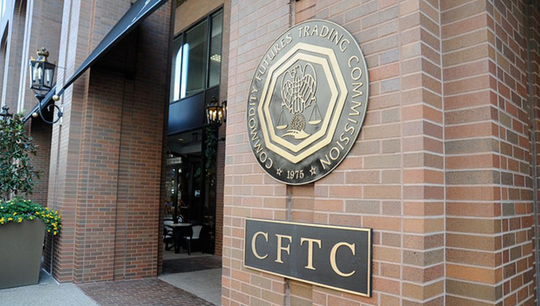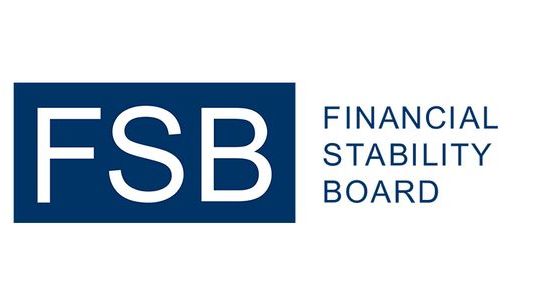More than a token risk – ICO trading platforms and promoters in SEC crosshairs
By Steven Gatti, Partner and David Adams, Associate, Clifford Chance
Published: 13 July 2018
Since issuing its "DAO Report" in July 2017,[1] the US Securities and Exchange Commission ("SEC") has aggressively asserted jurisdiction over the products sold through initial coin offerings ("ICOs").[2] Last March, the SEC issued a "Public Statement" cautioning investors and operators of online platforms that facilitate ICO offerings and trading that many platforms may be operating unlawfully.[3] And with increasing frequency, the SEC has brought enforcement actions in the digital asset space. These actions have focused principally on violations of the securities offering registration and disclosure requirements of the Securities Act of 1933 ("1933 Act") in the context of primary market ICOs.[4] The DAO Report and Public Statement underscore a second front in the SEC's push to regulate the digital asset markets – enforcement actions against intermediaries that distribute or provide a marketplace to trade instruments issued in ICOs, but fail to register as broker-dealers and/or securities exchanges under the Securities Exchange Act of 1934 ("1934 Act").
For example, earlier this year, the SEC and US Department of Justice ("DOJ") filed civil and criminal complaints against an exchange operator.[5]ICO trading platforms and other digital asset market participants, including hedge fund managers, also received SEC subpoenas earlier this year requesting information about ICO structures, investors, and transactional activity. We expect the regulatory and enforcement focus in this area to continue unabated, which has important implications for fund managers who want to invest in this emerging asset class.
1934 Act Registration Risks for Securities Token Trading Platforms and ICO Promoters
A foundational requirement for SEC jurisdiction over ICOs is the existence of a "security." Whether a digital asset is a security depends on its specific characteristics and the economic rights it represents. The SEC generally ignores "coin," "token," or other designations when assessing an asset's status.[7]The SEC considered the tokens described in the DAO Report to be securities because they met the so-called Howey "investment contract" test of being: (i) an investment of money; (ii) in a common enterprise; (iii) with an expectation of profit; (iv) due solely to the efforts of others.[8] We refer in this briefing to cryptocurrencies, coins, tokens, and other digital assets exhibiting the same or substantially similar characteristics as the DAO Report tokens as "securities tokens."
Exchange Registration
A securities token trading platform is likely to satisfy the definition of an "exchange," requiring either registration under the 1934 Act or reliance on an exemption. A platform will be deemed an "exchange" if it: (i) brings together the orders for securities of multiple buyers and sellers; and (ii) uses established, non-discretionary methods (e.g., an electronic trade matching engine) under which orders interact with each other, and the buyers and sellers entering such orders agree to the terms of the trade.[9] The SEC is closely examining the assets traded on platforms to determine if they are securities and ignoring "currency exchange" or "coin exchange" self-designations intended to avoid classification as a securities exchange.[10] The SEC has broad jurisdiction under Section 5 of the 1934 Act over exchanges that use, directly or indirectly, "any means or instrumentality of interstate commerce" to effect transactions on the exchange. Thus, the SEC is likely to assert that the 1934 Act exchange registration requirements apply to US securities token trading platforms and to non-US platforms available to US persons.[11]
Broker-Dealer Registration
Securities token promoters, intermediaries, and exchanges may also need to register with the SEC as broker-dealers.[12] Under Section 15 of the 1934 Act, absent an exemption, any person engaged in the business of effecting transactions in securities using US jurisdictional means must register with the SEC as a broker-dealer. The SEC interprets the meaning of "effecting transactions in securities" broadly to include activities beyond transaction execution. The SEC and US courts have found persons to be broker-dealers where they participate at key points in the chain of a securities transaction or distribution, such as maintaining custody of funds and securities, structuring securities transactions, engaging in transaction negotiation, solicitation, purchase or sale activities, or receiving commission-based compensation.[13]
Key SEC Enforcement Actions Involving Securities Token Exchange Operators
Much of the SEC's activity related to ICOs has necessarily been reactive, i.e., enforcement and policy statements vs. rule making, due to the speed of technological development and the rapid growth of the digital asset market. We review below key enforcement developments involving securities token platforms, and then discuss the impact on investment managers.
BTC Trading Corp.
In December 2014, the SEC took enforcement action against a California-based computer programmer and his online platforms ("BTC Trading") for failing to register as a securities exchange and broker-dealer under the 1934 Act.[14] The SEC found that BTC Trading operated a virtual stock exchange by, among other things: (i) providing 52 securities issuers the ability to create and list initial and secondary offerings; (ii) permitting users to electronically execute more than 400,000 trades in uncertificated digital securities by posting "bids" and "asks" to an online order book where trades were automatically executed according to non-discretionary price and time priority rules; and (iii) enabling issuers to advertise listings by posting a prospectus or business plan on a BTC Trading platform and to communicate with their investors.
The SEC also concluded that BTC Trading operated as an unregistered broker-dealer because it, among other things:(i) actively solicited the public to open trading accounts by advertising on virtual currency websites; (ii) opened over 10,000 online accounts for investors through the websites and maintained custody of users' virtual currency in a virtual currency wallet; and (iii) collected litecoin and bitcoin-denominated commissions based on each user's trading activity.
The DAO Report
The DAO Report found that tokens offered and sold by a "virtual" organisation known as "The DAO" were securities and therefore subject to the federal securities laws, including the requirement that issuers register the offer of distributed ledger or blockchain technology-based securities tokens under the 1933 Act, or utilise an exemption.
The DAO Report also discussed platforms that facilitated transactions in the DAO's securities tokens. These platforms publicly displayed their quotes, trades, and daily trading volume in DAO tokens, and executed transactions using non-discretionary methods.The SEC explained that the platforms where DAO tokens were listed and traded appear to have satisfied the 1934 Act definition of an "exchange."Chairman Clayton later confirmed that platform operators may also need to register as broker-dealers.[15]
On February 21, 2018, the SEC and the DOJ filed complaints against BitFunder, a bitcoin-denominated exchange and its founder ("BitFunder").[16]The SEC's civil complaint alleges that BitFunder operated as an unregistered online securities exchange for virtual "shares" of currency-related enterprises (e.g., virtual currency mining operations) (the "virtual assets"), and defrauded exchange users by misappropriating their bitcoins and failing to disclose a cyber attack that resulted in the theft of more than 6,000 bitcoins.The virtual "shares" at issue were uncertificated and many paid dividends in bitcoins.Online account statements provided by BitFunder to users reflected their ownership of virtual assets and bitcoins. Purchasing virtual assets and trading on the BitFunder platform also required users to deposit bitcoins in a single wallet controlled by BitFunder, a factor that made the cyber attack and theft experienced by BitFunder possible.
In identifying the unregistered exchange activity, the SEC complaint states that BitFunder: (i) required users to deposit the bitcoins used to purchase and sell shares in virtual assets in a wallet that it controlled; (ii) allowed users to buy and sell shares of virtual assets using bitcoins through an electronic matching system based on price and time priority; (iii) automatically executed buy and sell orders; (iv) publicly displayed all of its quotes, trades, and daily trading volumes in the listed shares of virtual assets; and (v) charged transaction-based fees when virtual asset shares were sold.
Consequences of Operating an Unregistered Exchange or Broker-Dealer
Unregistered securities token platform operators are subject to the full SEC arsenal of penalties. Although the SEC did not assess penalties against the platforms selling DAO tokens, in BTC Trading, the SEC required disgorgement of profits and interest, imposed a monetary penalty, and barred the founder from participating in the securities industry for at least two years. The SEC complaint against BitFunder seeks civil penalties including monetary fines and disgorgement with interest.Moreover, the SEC and other US authorities have imposed significant monetary penalties in recent years on both US and non-US entities for operating unregistered broker-dealers. Unregistered securities token exchanges and broker-dealers are also exposed to private claims under US laws including the 1934 Act.
Key Implications for Investment Managers
ICOs continued generating significant investment capital in the first quarter of 2018 despite intense regulatory scrutiny.[17] A fund manager interested in digital asset investments should be aware, however, that the regulatory classification of each asset depends on a highly facts and circumstances-based analysis. A recent speech by Mr. William Hinman, the Director of the SEC's Division of Corporation Finance, outlined the analysis.[18] While Mr. Hinman stated that he does not view Bitcoin and Ether as they exist today as "securities," he did not address the thousands of other "cryptocurrencies" currently in existence, or the thousands of "tokens" found on the Ethereum blockchain.
Given this continuing uncertainty, fund managers should assume that any instrument sold through an ICO is a "security" under applicable US law and take proactive steps to ensure that they meet their regulatory obligations.The SEC and other regulators regularly express concern about the ability of terrorist organisations and others to exploit the anonymity inherent in public blockchains to engage in money laundering.The SEC has also expressed concern about the ability of investment funds to effectively value digital asset investments, to ensure that the assets are securely custodied, and to avoid fraudulent schemes.[19]The liquidity of securities tokens is also of concern to the SEC, given the lack of exchanges on which they can be legally traded.
In response to the evolving regulatory landscape, existing platforms[20] are acquiring or establishing alternative trading systems ("ATS") to provide legal venues for securities token offerings and trading.[21]Moreover, at least one market participant recently announced a joint venture with the US-registered securities exchange to develop a first-of-its-kind platform that integrates blockchain-driven capital markets into the current US National Market System.[22]
Fund managers should closely monitor developments in the US and abroad as the regulatory landscape is constantly and rapidly evolving. While efforts to establish a functioning SEC-compliant securities token exchange remain ongoing, the success of these efforts, coupled with additional guidance from the SEC on custody and other issues, may help securities tokens quickly transition from fringe investments and curiosities to appealing opportunities for institutional investment.
To contact the author:
Steven Gatti, Partner at Clifford Chance: [email protected]
David Adams, Associate at Clifford Chance: [email protected]
Footnotes
[1] Report of Investigation Pursuant to Section 21(a) of the Securities Exchange Act of 1934: The DAO, SEC Rel. No. 81207 (July 25, 2017) (the "DAO Report").
[2] See, e.g., SEC Chairman Jay Clayton, Statement on Cryptocurrencies and Initial Coin Offerings (Dec. 11, 2017) (the "December 2017 Statement") (explaining that "[b]y and large, the structures of initial coin offerings . . . involve the offer and sale of securities and directly implicate the securities registration requirements and other investor protection provisions of our federal securities laws").
[3] SEC Divisions of Enforcement and Trading and Markets, Statement on Potentially Unlawful Online Platforms for Trading Digital Assets
(Mar. 7, 2018).
[4] See, e.g., SEC v. AriseBank et al., No. 3:18-CV-00186 (N.D. Tex., Jan. 25, 2018) (halting allegedly fraudulent ICO); SEC v. Plexcorps et al., No. 1:17-CV-07007 (E.D. NY, Dec. 1, 2017) (ordering emergency asset freeze to halt an alleged ICO fraud).
[5] SEC v. Jon E. Montroll and BitFunder, No. 1:18-CV-01582 (S.D.N.Y. Feb. 21, 2018); US v. Jon E Montroll, No. 18 MAG 1372 (S.D.N.Y Feb. 21, 2018) (the "BitFunder Complaints").
[6] See, e.g., NASAA, State and Provincial Securities Regulators Conduct Coordinated International Crypto Crackdown, Press Release (May 21, 2018) available at http://www.nasaa.org/45121/state-and-provincial-securities-regulators-conduct-coordinated-international-crypto-crackdown-2/
[7] Some legal practitioners have urged the SEC to acknowledge that certain products distributed through ICOs do not exhibit the characteristics of a security (so-called "utility tokens"). Chairman Clayton has expressed skepticism, stating "I have yet to see an ICO that doesn't have a sufficient number of hallmarks of a security." Dave Michaels & Paul Vigna, SEC Chief Fires Warning Shot Against Coin Offerings, Wall Street Journal (Nov. 9, 2017) available at https://www.wsj.com/articles/sec-chief-fires-warning-shot-against-coin-offerings-1510247148.
[8] DAO Report at Section B.1. (citing SEC v. W.J. Howey Co., 328 U.S. 293, 301 (1946)).
[9] See 1934 Act Rule 3b-16(a).
[10] See, SEC Chairman Jay Clayton, Virtual Currencies: The Oversight Role of the U.S. Securities and Exchange Commission and the U.S. Commodity Futures Trading Commission (Feb. 6, 2018) (stating that the "currently applicable [state money transmitter] regulatory framework for cryptocurrency trading was not designed with trading of the type we are witnessing in mind").
[11] For non-US persons, the use of US jurisdictional means is typically inferred where a non-US person provides securities-related exchange, brokerage, or dealer services to US persons through a website accessible to US persons.
[12] The 1934 Act generally defines a "broker" as a person engaged in the business of (i.e., regularly participating in) effecting transactions in securities for others. A "dealer" is a person engaged in the business of buying and selling securities for its own account. The distinction between the broker and dealer definitions often becomes blurred and securities firms are referred to as "broker-dealers."
[13] Securities token trading platforms may trigger other US regulatory requirements. Platforms that offer digital wallet services may trigger transfer agent or clearing agency registration requirements. Platforms that exchange fiat currency for platform currency or cryptocurrency (e.g., bitcoin) must also consider money transmitter licensing requirements. These issues are beyond the scope of this article.
[14] In the Matter of BTC Trading Corp. and Ethan Burnside, SEC Rel. No. 34-73783 (Dec. 8, 2014).
[15] See December 2017 Statement (stressing that "those who operate systems and platforms that effect or facilitate transactions in these products . . . may be operating unregistered exchanges or broker-dealers in violation of the [1934 Act]").
[16] See generally the BitFunder Complaints. The DOJ BitFunder Complaint focuses on non-securities criminal claims.
[17] See, e.g., Coindesk, State of Blockchain Q1 2018 (May 14, 2018) available at https://www.coindesk.com/research/state-blockchain-q1-2018/?slide=40.
[18] Digital Asset Transactions: When Howey Met Gary (Plastic), speech by William Hinman, Director, SEC Division of Corporation Finance
available at https://www.sec.gov/news/speech/speech-hinman-061418.
[19] See generally, SEC Staff Letter, Engaging on Fund Innovation and Cryptocurrency-related Holdings (Jan. 18, 2018) available at
https://www.sec.gov/divisions/investment/noaction/2018/cryptocurrency-011818.htm.
[20] See, e.g., Nikhilesh De, Token Trader Templum Just Bought a Broker-Dealer, Coindesk (Feb. 7, 2018) available at https://www.coindesk.com/templum-acquires-liquid-m/.
[21] ATS's are exempt from the 1934 Act's definition of an "exchange" if they meet the requirements set forth in SEC Regulation ATS. These requirements include registering with the SEC as a broker-dealer, filing an ATS registration form with the SEC, and abiding by market transparency and market access requirements for certain securities.
[22] tZERO and BOX Digital Markets Sign Deal to Create Joint Venture, Business Wire (June 19, 2018) available at
https://www.businesswire.com/news/home/20180619005897/en/tZERO-BOX-Digital-Markets-Sign-Deal-Create.







